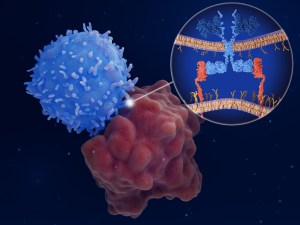Using media—and Muppets—to promote health
A small girl in Tanzania is getting ready to go to sleep. She is tucked safely in her bed, surrounded by mosquito netting. “Hey mosquito, I hear you, but you can’t get at me,” she says. “My net is treated.”
The girl is featured in a short video clip that’s part of Sesame Workshop’s “Killimani Sesame” show, produced specifically for Tanzania. The goal is to fight malaria, which each year kills roughly 60,000 in the African country—80% of them children.
Explaining the importance of using mosquito netting treated with insecticide is an example of the kind of health promotion message that Sesame Workshop—the nonprofit that created the children’s public television show “Sesame Street,” featuring Muppets like Elmo, Cookie Monster, and Big Bird—disseminates everywhere from Nigeria to Northern Ireland. This and similar efforts were the subject of a February 12, 2013 talk at Harvard School of Public Health by Abigail Bucuvalas, Sesame Workshop’s assistant director of global education. The talk was part of the Health Communication Concentration Speaker Series.
“There’s an enormous number of health issues that we could try to address around the world,” Bucuvalas said. “More and more, we’re seeing that many of the developing countries we work in have a double burden of disease. Infectious diseases like HIV and malaria are still a problem, but increased access to high-calorie foods and an increasingly sedentary lifestyle are causing increases in diabetes and obesity as well.”





